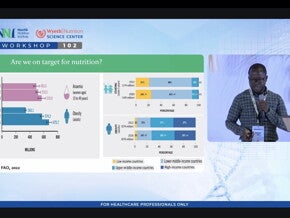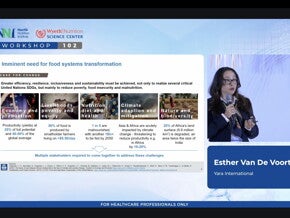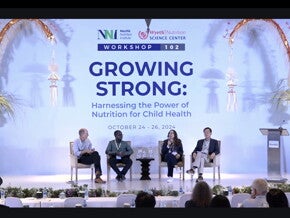PARENTAL AND FAMILY MEMBERS’ INVOLVEMENT IN INFANT AND YOUNG CHILD FEEDING (Part 3)
To ensure optimal breastfeeding and complementary feeding, there is need to promote the
involvement of both parents in infant and young child feeding practices (IYCF). Parental involvement is the one-to-one interaction that happens between a parent and a child in activities such as feeding, where the parents assume responsibility for child care and welfare (Lamb, Pleck, Charnov & Levine, 1987). Much as the involvement of both fathers and mothers is essential in the feeding and caring of infants and young children, mothers are the ones mostly involved especially in feeding infants. As reported by Hossain et al. (2007), mothers spend more time feeding and playing with the children than fathers. Traditional family roles typically place the responsibilities related to food (planning meals, cooking and feeding) and child care on the mother, whereas the father’s primary responsibilities are focused on ensuring financial security (Thuita, 2011). It is deemed natural for mothers to breastfeed and to provide complementary feeding to the infants and young children.
However, IYCF does not just involve a mother or caregiver providing nourishment to the child, it also involves the relationship between the child and caregiver involved. Infants start to signal their hunger to mothers shortly after birth with irritability and sucking at the level depending of infants own hunger and rate of supply of food from the mother (Wells, 2003). A mother’s response to an infant’s behavioural signs depends on information coming from the child about timing, amount, preference, pacing and eating capability, but also parental perception of this information and infant characteristics (Satter, 1986). In most cultures, childcare is regarded as a shared responsibility. However, the roles of men and women are distinctly different (Mukuria, Thuita, SL & T, 2012). Men are not involved in direct care and nurturing of children younger than two years in the community, because culturally it is considered women’s work. A father’s role in such cases is to provide support to the mothers in the feeding of infants and young children (Thuita, 2011). Mothers do not always make “executive decisions” on child feeding; grandmothers and husbands also have an influence on the decisions that are made.
Parental and family members’ involvement in infant and young child feeding will be discussed.
Father’s involvement in infant and young child feeding
A father’s involvement in a child begins after the child’s birth where the fathers are involved
in new born care by giving out verbal instructions, support and supervision to their wives
(Dumbaugh, Tawiah-Agyemang, Manu, ten Asbroek, Kirkwood & Hill, 2014). Culturally the roles defined for fathers include providing for the family (food, clothing, shelter, money for health care, security) and the moral upbringing of children as disciplinarians in the
home (Thuita, 2011). In most cases, the father of the child provides the main source of financial and moral support pertaining to infant feeding (Katepa-Bwalya, Mukonka, Kankasa,
Masaninga, Babaniyi & Siziya, 2015). This also includes providing adequate food for
breastfeeding mothers. In a qualitative study done in Kenya, men agreed that to breastfeed
successfully, mothers require a well-balanced diet that will help them to produce breast milk
and to have enough energy to do her work, and that it was the father’s role to provide the food (Mukuria et al., 2012). For the exclusively breastfed child, fathers participate in the
breastfeeding process by offering emotional support to the mothers, accompanying the mothers to antenatal clinics and assisting the mothers with household chores so that they have ample time to breastfeed the infants (Bhatta, 2013).
During complementary feeding, fathers become more actively involved in child feeding. Their involvement is mostly by participating in feeding the children, purchasing food for the children and providing support to mothers to prepare adequate complementary foods (FAO, 2015). Fathers also have strong control over what foods are purchased in the home and the women most times recommend the foods they should buy (Saha, Bamezai, Khaled, Subandoro, Rawat & Menon, 2011). Providing adequate knowledge regarding IYCF to the fathers could therefore result in improved feeding practices. A study in Baltimore, where fathers were randomly assigned to participate in a class on either infant care only (control) or infant care and breastfeeding (intervention), observed that the breastfeeding initiation rate for infants whose fathers participated in the intervention group was higher than among those whose fathers were in the control group. However, the involvement of fathers in feeding children below two years is limited in most times. It has been suggested that many fathers traditionally give little thought to IYCF practices, and their practices are often determined by cultural norms (Aubel, 2012; Thuita, 2011). In most cases the fathers participate indirectly by providing food for the family and resources to finance logistical and other costs associated with both routine and emergency health care for children and women (Thuita, 2011). This was evident in a study in rural Mexico (Aubel, 2012) where men’s involvement in new born care was very limited.
In Malawi, Waltensperger (2001) found that in both patrilineal and matrilineal societies, new
borne feeding and child care practices adopted by women were strongly influenced by
grandmothers’ advice. Men were found to have relatively limited influence on the care and
feeding practices of infants during the child’s first months of life. This could be because in
most cases the fathers are not clear about their roles/responsibilities in IYCF beyond providing food (Thuita, 2011).
Family members’ involvement in infant and young child feeding
Grandmothers and other adult females residing in the same household with the mothers also
participate in IYCF. Grandmothers are highly esteemed by communities as knowledgeable and experienced in child care. They are powerful decision-makers and influencers of feeding
practices for young children in the family (Thuita, 2011). While mothers are the primary
caregivers involved in making decisions on child feeding, grandmothers also play a substantive role in caregiving, especially in the feeding of young children. Across cultures, grandmothers are involved in advising and caregiving related to multiple aspects of infant and child nutrition, including breastfeeding initiation, techniques, and duration, feeding during illnesses, timing and types of complementary foods to provide and diet of pregnant and breastfeeding mothers (Aubel, 2012). This was evidenced from a study in Kenya by Thuita (2011) where the findings showed that grandmothers were frontline caregivers to young children, and powerful influencers of decisions related to their general care and feeding. They were the main alternative caregiver in the mother’s absence. They provided general oversight and care for infants and young children in the community, ensuring that the children are safe, bathed, and well fed. Grandmothers were also identified to be central in decision making on issues related to food preparation and feeding young children, health care (recognising signs of illness and advising on the course of action when children are sick), family livelihood (food production), and spiritual nurturing. However, it was observed that many grandmothers had inadequate knowledge on recommended complementary feeding practices, especially related to quantity, dietary diversity, and timing of the introduction of complementary foods.
In addition to fathers and grandmothers, other family members and friends are also central in providing support and advice about breastfeeding, particularly if they have frequent and ongoing contact with the mother (Abel, Park, Tipene-Leach, Finau & Lennan, 2001; Chezem, Friesen & Clark, 2001). This was evidenced by a study by Evans et al. (2004) where it was found that women whose family members had a positive opinion about breastfeeding or who had previously breastfed were more likely to breastfeed their infants and to breastfeed longer (Evans, Dick, Lewallen & Jeffrey, 2004).
Much as mothers take the central role in infant and young child feeding, the support they get from fathers, grandmothers and other family members and friends also has an influence on their IYCF practices. In order to improve IYCF practices, it is essential that mothers, caregivers, and family members have accurate information, as well as support to overcome barriers. When mothers receive proper counselling and ongoing social support, evidence shows that there is improved uptake of optimal feeding practices (Green, 1999).
Peer support, counselling and education or support by the father or significant others are part of home and family environment interventions. Interventions based on peer support have been found to increase breastfeeding continuation (Ingram, MacArthur, Khan, Deeks & Jolly, 2010; Jolly, Ingram, Khan, Deeks, Freemantle & MacArthur, 2012; Sinha et al., 2015; Sudfeld, Fawzi & Lahariya, 2012). However, context seems to influence the effectiveness of the intervention. Effect of peer support was smaller in communities having high prevalence of formula-feeding (Sudfeld et al., 2012) and in developed countries compared with low- or middle income countries (Jolly et al., 2012).
If you liked this post you may also like



